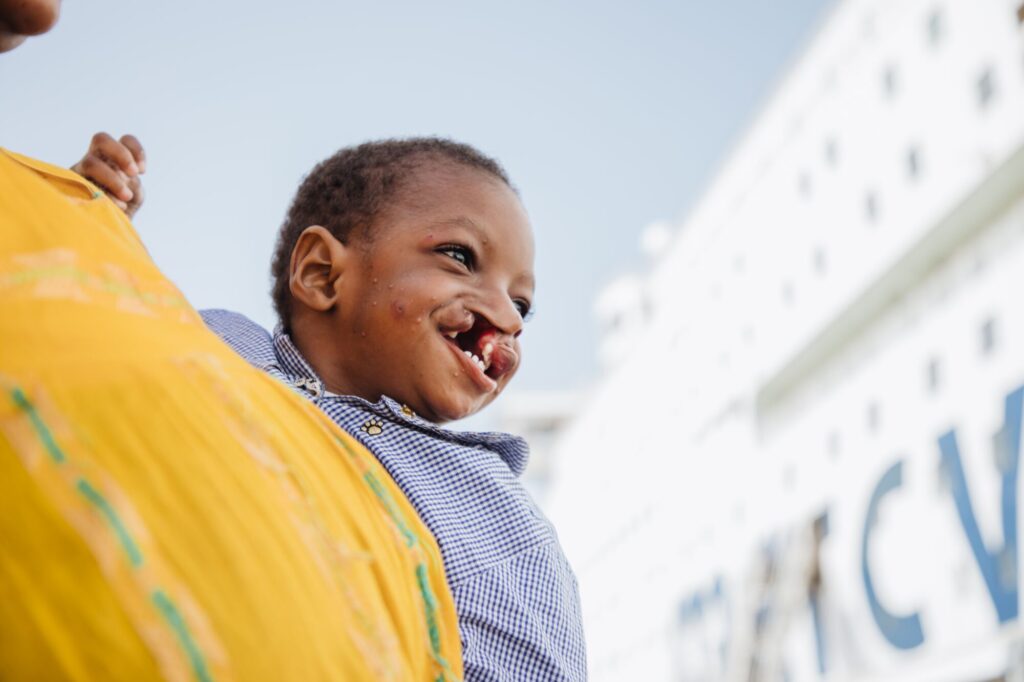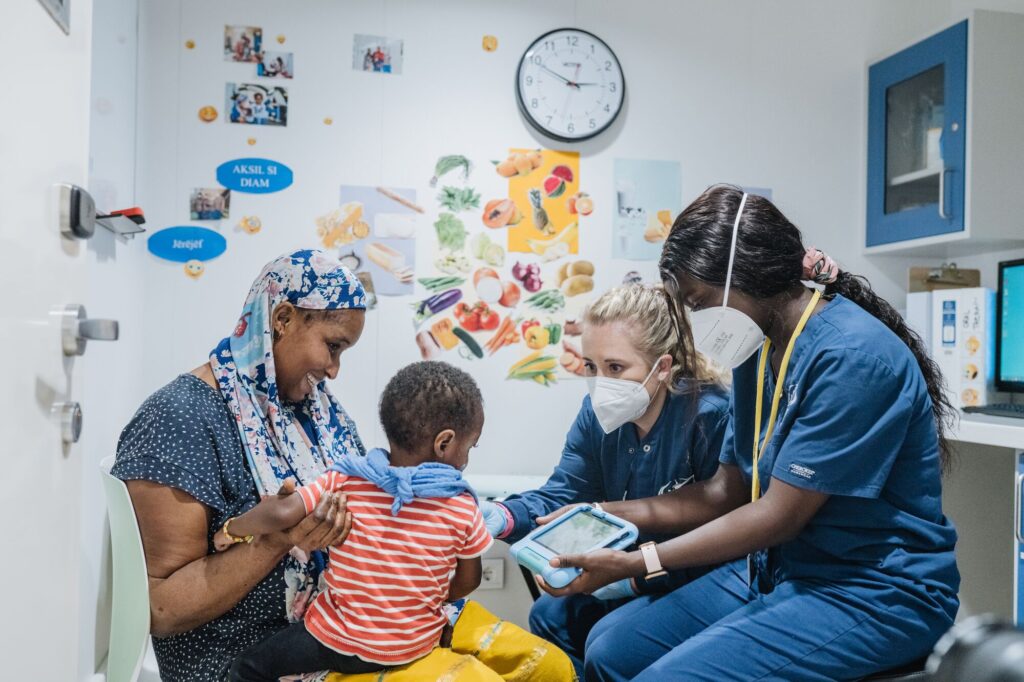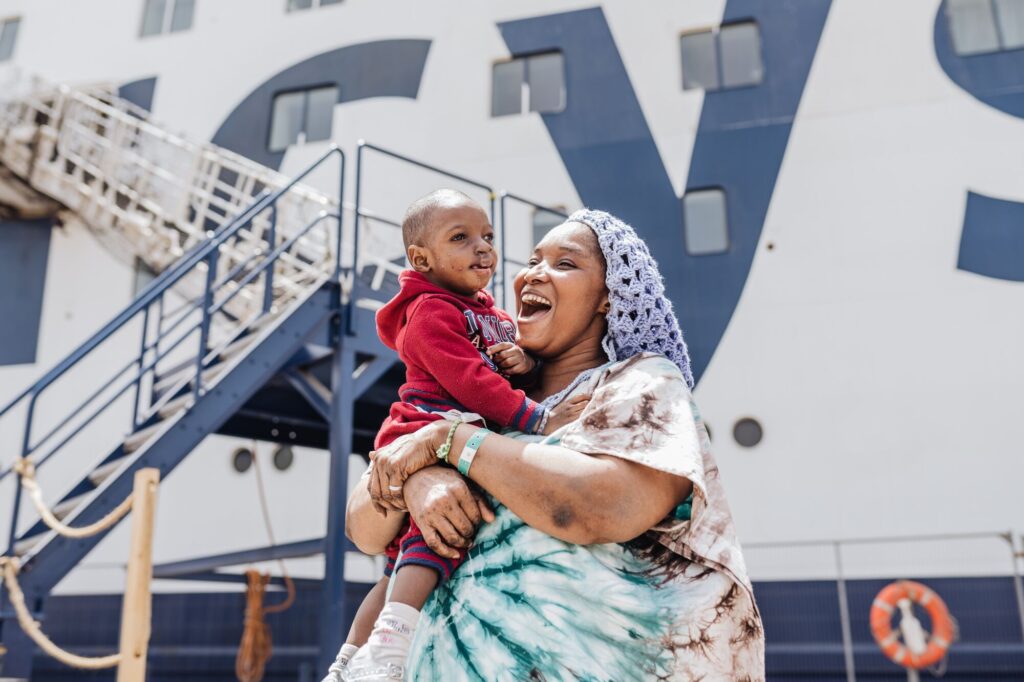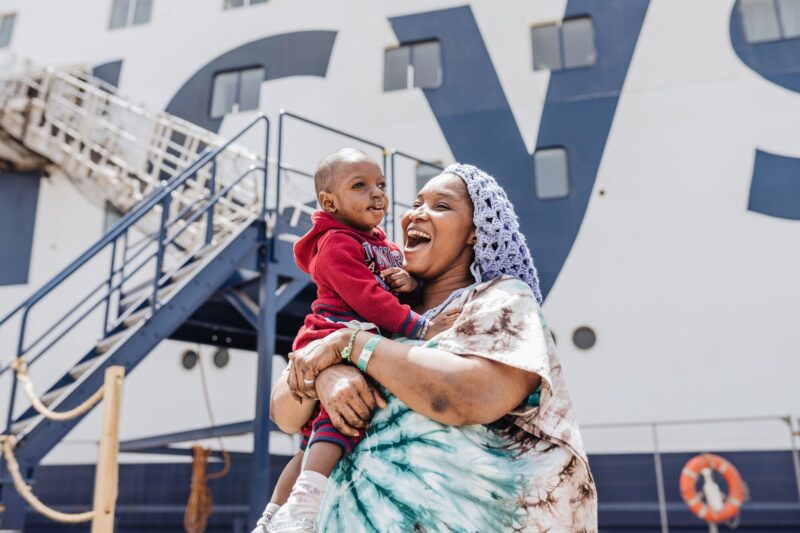“Life is hard… and if you have a child who was born without the ability to eat, even more so,” Ndeye said.
Ndeye’s only son, Cheikh, was born with a cleft lip and palate. Due to these conditions, Cheikh had difficulty breastfeeding. In his place, Ndeye fed him bottle milk, desperately trying to make sure his baby had the nutrition he needed.

Swallowing was difficult and food often spilled out of his nose. As a result, Cheikh developed an aversion to food and maintained a diet of primarily infant formula for the next two years. Malnutrition stunted her development; and although her three older sisters celebrated her first birthday already walking, Cheikh spent her second still crawling and not speaking.
“The truth is that I don’t understand why he refuses to eat,” his mother lamented, worried about his little one.
Two difficult years had passed before she took Cheikh to Ships of Hope on his second birthday. “I couldn’t leave my house, or even go anywhere else. I was just taking care of Cheikh to help him eat and survive,” said Ndeye, who quit her job to stay home and take care of her son. .
Because Cheikh generally rejected solid foods, he consumed large quantities of milk, which put a great financial strain on the household. Cheikh’s father continued to work as a teacher, but feared losing his job as the family became marginalized from society. His colleagues felt that Cheikh’s poor health was a reflection of his shortcomings as a father and as a man. Ndeye feared darker days were ahead as he expected the growing shame would cost them the support of his community.

Feeding program
During a heartfelt conversation with a companion, Cheikh’s father learned of the existence of Ships of Hope and the family decided to seek healing on board.
However, before Cheikh could undergo surgery, he needed to get a lot stronger. Volunteer infant feeding coordinator Trina Laidlaw worked with Cheikh every day to help him gain enough weight to be eligible for his cleft lip repair surgery. She prioritized his nutrition, switching from infant formula to one designed for toddlers to help him build muscle and gain energy.
Trina’s interventions helped: after two months, Cheikh had gained the weight he needed to undergo the first surgery.
Ndeye feared she would spend the entire next day crying and in pain. But a couple of days later, Ndeye had put aside any fears about side effects, relieved that the surgery had gone smoothly and safely for little Cheikh. “At that moment, he was very happy,” she said. Her husband called her and she said, “Cheikh’s dad was even happier than me!”
Renewed hope
After his cleft lip repair, Cheikh continued to grow healthier day by day. Because he still faced some difficulties eating, he did not gain the weight necessary to be strong enough for a second onboard surgery to repair his cleft palate. Ndeye returned home with a new lease on life and the hope that a future operation would one day arrive to completely heal Cheikh’s cleft palate. Cheikh’s lip surgery opened his eyes to what was possible, and the compassionate care they had received restored his faith in humanity.
“If he wasn’t in this condition, people would be talking about him because he is smart. He is not a lazy boy,” Ndeye shared. “He likes to play, he wants to play all the time.”
Excited by the acceptance they had experienced on board, Ndeye was ready to show her son to the world: “Some people have never seen him since he was born. They have never seen him because I wouldn’t let him leave the house, but now, if I want , I can carry him and walk with him all over the neighborhood. Now, I can go wherever I want with Cheikh.”

Their commitment to their son and his health was evident to those who had seen them in the room. “That love, and what she’s investing in is really beautiful,” Trina said. “My hope is that she […] she has been assured that she is able to move forward.”
Ndeye concluded: “I will never be discouraged.”

